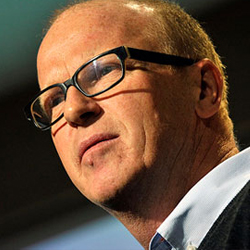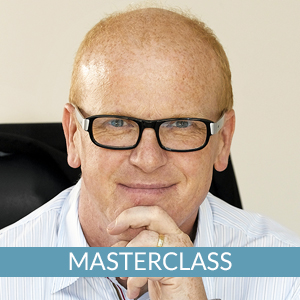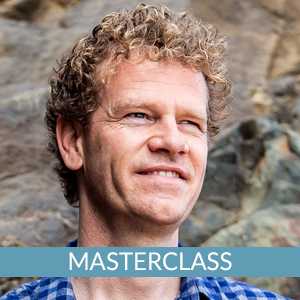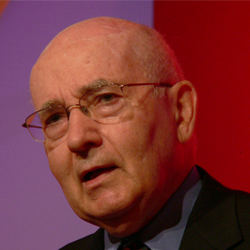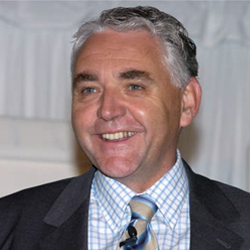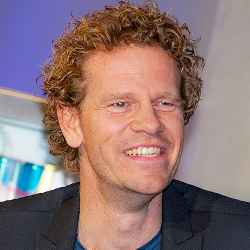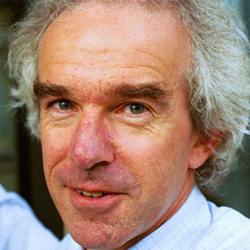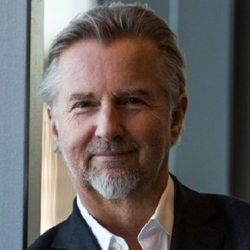Charlie Leadbeater is a renowned author, thinker and strategic adviser on innovation whose advice is sought by governments, cities and corporations across the world.
The New York Times anointed Charlie’s idea, The Pro-Am Revolution, referenced extensively by Chris Anderson in his landmark book The Long Tail, as one of the biggest global ideas of the last decade. Charlie's TED talks on innovation have been watched by over a million people.
The Spectator Magazine described him as "the wizard of the web" after the publication of his bestseller “We Think: mass innovation not mass production” which forecast the rise of more collaborative, open forms of innovation made possible by the web. The YouTube animation based on the book has been watched by more than 300,000 people. Accenture, the global management consultancy, ranked him one of the top management thinkers in the world, and the Financial Times described him the outstanding innovation expert in the UK. A past winner of the prestigious David Watt Prize for journalism, Charlie was assistant editor at the Independent newspaper after a distinguished career at the
Financial Times, where he was Labour Editor, Industrial Editor and Tokyo Bureau Chief.
Charlie went on to become a key adviser to Prime Minister Blair’s policy team at the Downing Street Policy Unit (he is widely held to be Tony Blair's favourite global thinker) and the Department of Trade and Industry, specialising in the impact of the Internet and the knowledge driven economy. He drafted the UK Government’s White Paper – Our Competitive Future: Building the Knowledge Driven Economy which was one of the first policy papers in the world to argue that advanced economies would become increasingly dependent upon innovation for growth.
Governments in Europe, North America, Australia and Latin America have turned to him for advice on policy issues ranging from health and education to culture and cities. Charlie speaks regularly at high profile conferences on every continent, from the Gates Foundation in Seattle to the Qatar Foundation in Doha, for the Economist magazine in London to the Government of Mexico, from Microsoft to the Tate Art Museum.
Charlie is a long standing senior research associate with Demos, the influential London think tank; a co-founder of Participle, the leading public services innovation agency, which is working with public sector agencies to create next generation public services and a visiting fellow at the National Endowment for Science Technology and the Arts, where he has championed ideas of open and user driven innovation. Charlie is co-chairman of the social enterprise Apps 4 Good, one of the first charities to be granted a license to make Facebook apps which has recently caught the attention of the White House.
He has a track record for spotting ideas ahead of time. The Rise of the Social Entrepreneur, published in 1997, for example, was one of the first books to predict social enterprise solutions to public problems would become more compelling. Social entrepreneurship has since become a global movement. Charlie gave a keynote address at the inaugural Skoll World Forum on Social Entrepreneurship in Oxford.
His work ranges widely over innovation in the private, public and social sectors. In Learning from the Extremes, a widely read report published in 2009 by Cisco, he looked at the way social entrepreneurs are using technology to create new low cost approaches to learning in the slums and favelas of the developing world. From a new position working on health innovation with Imperial College London he is looking at the way new, low cost and distributed models of health care are emerging in the developing world.
Charlie is currently researching his next book, The Frugal Innovator, due to be published in early 2014, which analyses the spread of super low cost, simple, robust and shared solutions to pressing social challenges. The Frugal Innovator looks at how the global dynamics of innovation are shifting during the downturn with more new products being devised for and with relatively poor consumers of the developing world. In tandem with that he is researching the way that digital technology is reshaping our lives and how it can be made more humane and empathetic.
